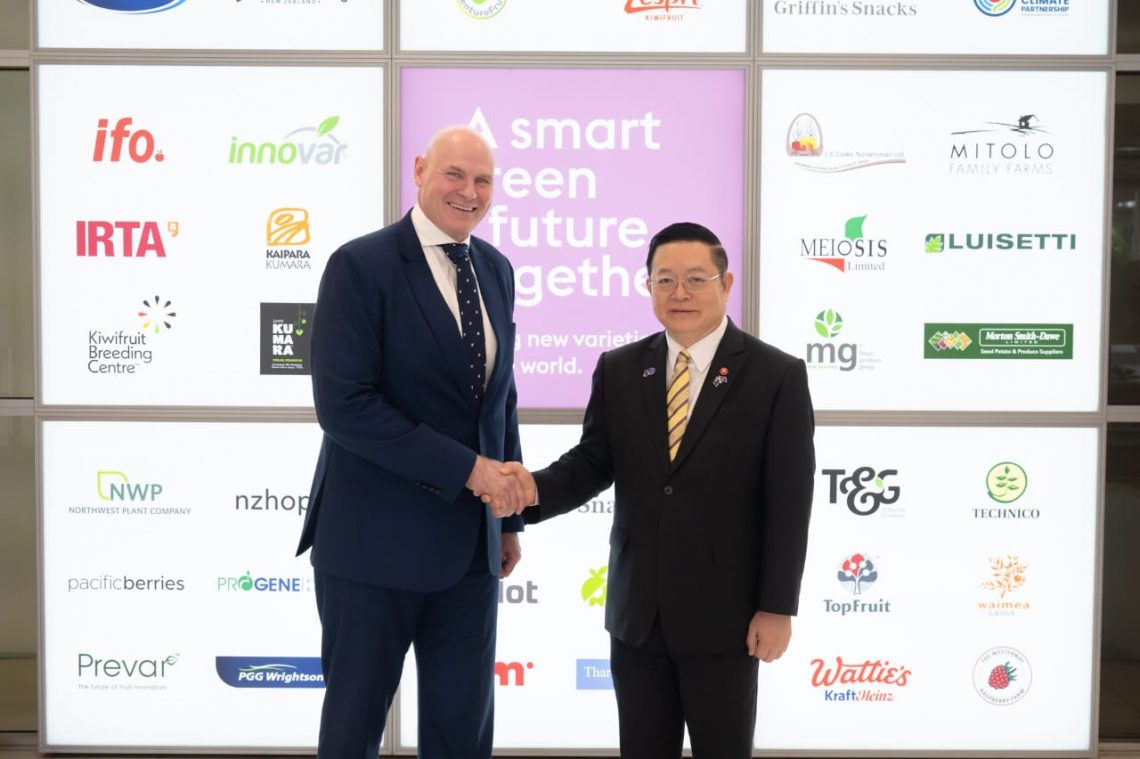In a significant step toward enhancing food security and sustainable agriculture, the Secretary-General of ASEAN recently visited Plant & Food Research Ltd in Auckland, New Zealand. This visit underscored the growing importance of ASEAN cooperation in agricultural research, particularly in areas of innovation, food safety, and climate-resilient farming.
As Southeast Asia grapples with climate change, food insecurity, and growing populations, partnerships like this one become increasingly critical. This article explores the strategic significance of this cooperation, the potential outcomes of ASEAN’s collaboration with New Zealand in the agricultural sector, and the long-term benefits for regional development.
The Growing Importance of Agricultural Innovation in ASEAN
Agriculture remains a cornerstone of many ASEAN economies, employing a large segment of the population and contributing significantly to GDP. However, the sector is under pressure from rising temperatures, declining soil health, and unpredictable rainfall patterns—all symptoms of accelerating climate change.
This is where ASEAN cooperation in agricultural research becomes pivotal. By working with established research institutions such as New Zealand’s Plant & Food Research Ltd, ASEAN countries can gain access to cutting-edge technologies and scientific insights. These include:
- Development of climate-resilient crops
- Sustainable pest and disease management strategies
- Innovations in post-harvest processing and supply chain efficiency
- Nutritional profiling of indigenous crops
The partnership aligns with ASEAN’s vision of enhancing food system resilience through science-based solutions and collaborative innovation. It also resonates with the ASEAN Vision 2025 for an integrated and sustainable agricultural sector.
Highlights from the Secretary-General’s Visit to Plant & Food Research
During his visit, Secretary-General Dr. Kao Kim Hourn engaged in high-level discussions with research scientists and innovation leaders from Plant & Food Research Ltd. The visit highlighted several ongoing and potential collaboration areas:
1. Joint Research Projects
ASEAN and New Zealand researchers are exploring collaborative projects in fruit genetics, plant-based proteins, and sustainable aquaculture. These initiatives are expected to bring direct benefits to ASEAN member states, particularly those seeking to diversify their agricultural outputs and reduce dependency on imports.
2. Capacity Building and Knowledge Exchange
Beyond technology transfer, the cooperation emphasizes human capital development. ASEAN scientists and agricultural practitioners will have opportunities to receive training and mentorship in New Zealand, creating a long-term impact on scientific capacity within the region.
3. Sustainable and Ethical Innovation
Plant & Food Research Ltd has a strong focus on ethical innovation, including indigenous knowledge systems and sustainability frameworks. This approach resonates with ASEAN’s cultural diversity and community-based farming traditions.
The visit was not merely ceremonial—it signaled a serious commitment to building a mutually beneficial agricultural research ecosystem that is scalable, inclusive, and future-oriented.
Strategic Benefits of ASEAN-New Zealand Agricultural Partnerships
The strengthening of ASEAN cooperation in agricultural research with New Zealand offers multiple benefits:
A. Enhanced Food Security
With Southeast Asia’s growing demand for food, ensuring availability, accessibility, and affordability is critical. Research-driven improvements in crop yield, pest resistance, and nutrition can help secure the region’s food supply in the long run.
B. Climate Resilience
By learning from New Zealand’s sustainable agriculture models, ASEAN countries can adapt better to environmental changes. Whether through advanced irrigation systems, soil health monitoring, or eco-friendly farming techniques, collaboration will help reduce climate-related vulnerabilities.
C. Economic Empowerment
Innovation in agriculture drives not just productivity but also rural incomes. Smallholders and cooperatives in ASEAN can benefit from improved technologies, fair market access, and better value chains.
D. Strengthening Trade Relations
New Zealand is a key partner in the ASEAN-Australia-New Zealand Free Trade Area (AANZFTA). Enhanced agricultural research ties could lead to better alignment in food standards, easier market access, and more resilient supply chains between the two regions.
The Role of ASEAN Institutions and Frameworks
This cooperation is not happening in isolation. It is supported by ASEAN institutions and regional frameworks that prioritize food and agricultural resilience. Some key platforms include:
- ASEAN Ministerial Meeting on Agriculture and Forestry (AMAF) – which provides policy guidance for regional collaboration.
- ASEAN Integrated Food Security (AIFS) Framework – aiming to address short- and long-term food security challenges.
- ASEAN Research and Development Platforms – where member states can jointly fund and share the outcomes of scientific projects.
The visit to Plant & Food Research Ltd also reinforces ASEAN’s engagement with external partners who share the bloc’s commitment to sustainable development.
Looking Ahead – Future Opportunities and Considerations
While the collaboration offers immense promise, a few areas need ongoing attention:
- Harmonization of Regulations:
For research and innovations to scale across borders, there needs to be mutual recognition of standards and approvals among ASEAN countries and with New Zealand.
- Funding and Investment:
Collaborative research requires sustained investment. Both public and private sectors must be involved to ensure continuity and impact.
- Inclusive Participation:
From indigenous farmers in Indonesia to coastal aquaculture practitioners in the Philippines, ensuring that research outcomes are accessible and relevant to all stakeholders is vital.
- Data and Digital Tools:
Future cooperation could expand into smart agriculture, using AI, IoT, and big data for real-time monitoring and predictive farming, a field where New Zealand is already making strides.
Conclusion
The Secretary-General’s visit to Plant & Food Research Ltd marks a turning point in ASEAN cooperation in agricultural research. As both regions face shared challenges—climate volatility, food insecurity, and the urgent need for innovation—this partnership serves as a model of science-led diplomacy.
By integrating technical expertise, cultural values, and strategic vision, ASEAN and New Zealand can co-create a resilient agricultural future that benefits millions across Southeast Asia. The seeds of collaboration planted today have the potential to yield a harvest of innovation, prosperity, and sustainability in the years to come.
Read More






 Friday, 27-02-26
Friday, 27-02-26







